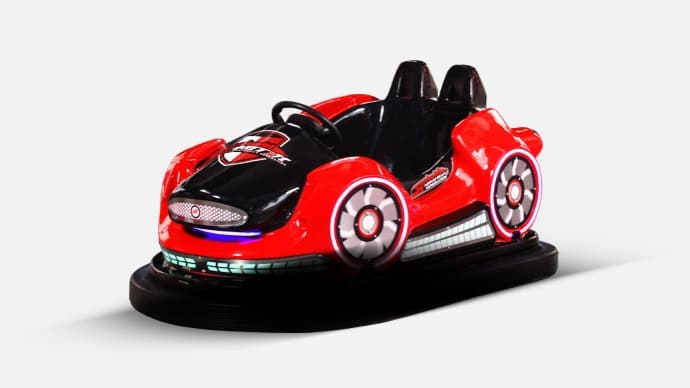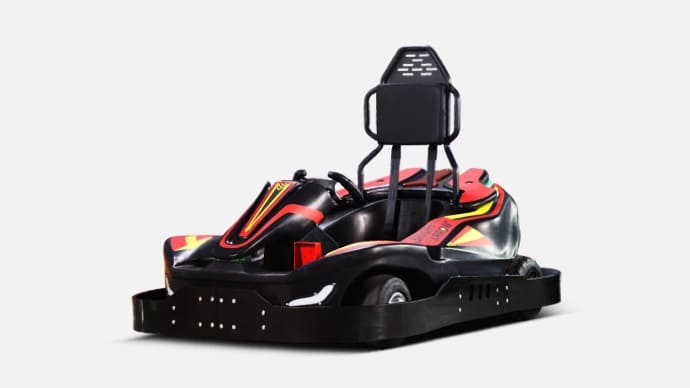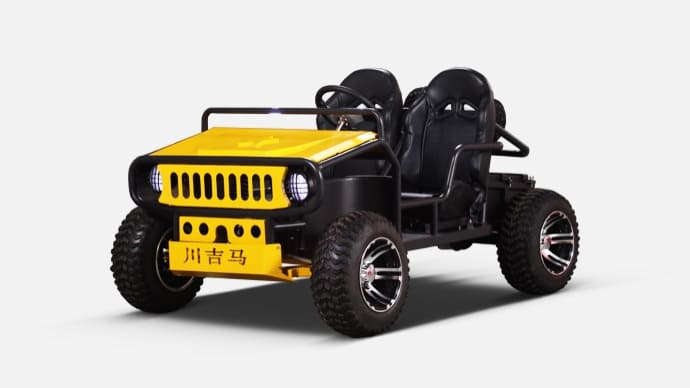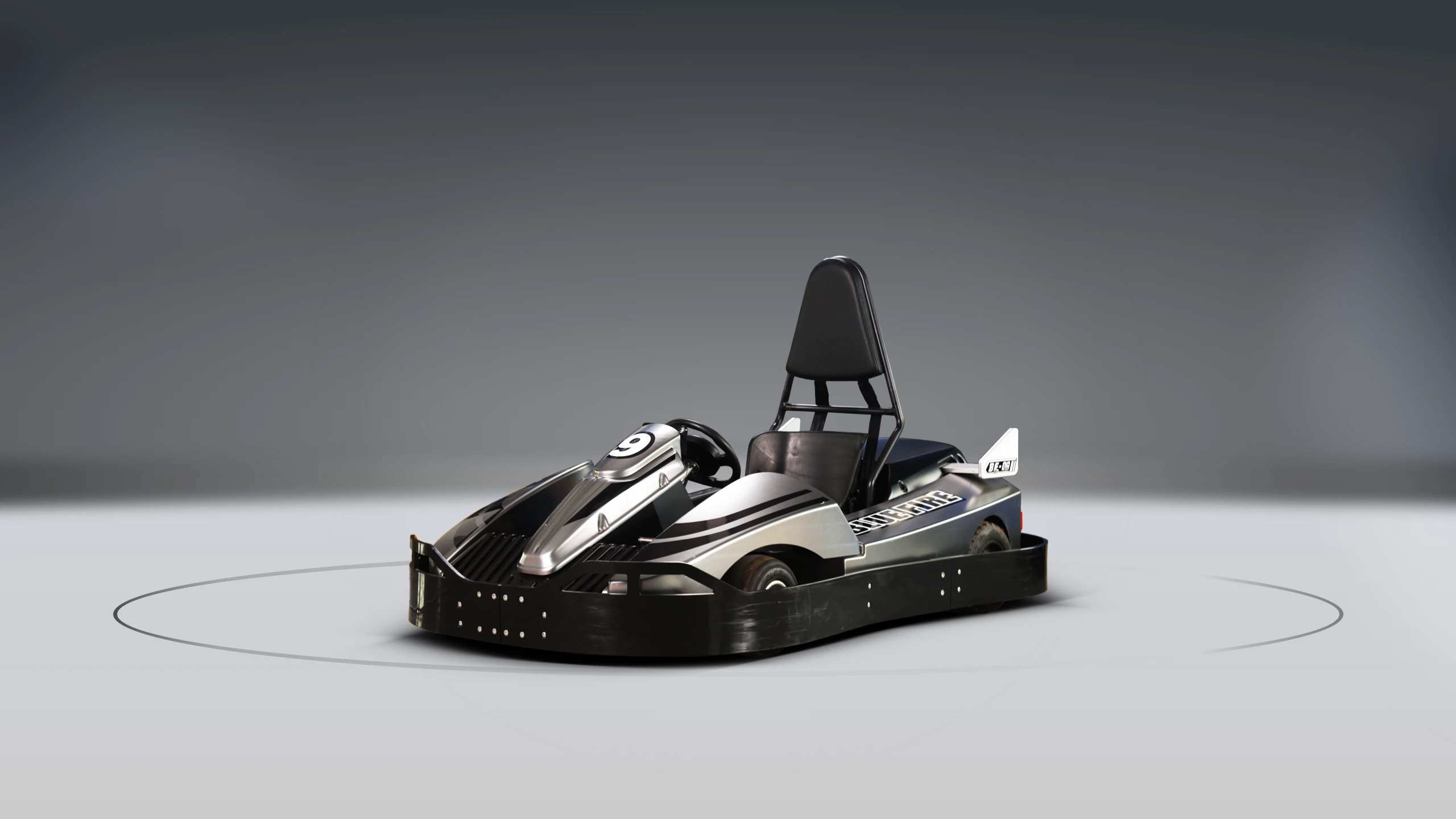DIY Guide: Convert a Gas Go Kart to Electric
- DIY Guide: Convert a Gas Go Kart to Electric
- Why convert to Electric Go Karts?
- Initial assessment: Is your gas kart a good candidate?
- Selecting the right motor for Electric Go Karts
- Choose a battery chemistry and capacity
- Battery and motor comparison
- Controller, throttle and wiring
- Mechanical integration and mounting
- Safety systems and thermal management
- Charging setup and infrastructure for venues
- Estimated costs and ROI for Electric Go Karts
- Conversion example: a common build
- Testing, tuning and legal considerations
- Maintenance and lifecycle
- Advantages of Electric Go Karts for venues
- How ANCHI Amusement can help
- Comparison: Motor and Drive Options
- Common pitfalls and how to avoid them
- Checklist: Parts and tools you’ll need
- FAQ — Electric Go Karts Conversion
- How long does a conversion take?
- Can I keep the original transmission or clutch?
- What runtime and top speed can I expect?
- Are conversions safe for commercial use?
- Is battery swapping a good option for tracks?
- Where can I get replacement parts and support?
DIY Guide: Convert a Gas Go Kart to Electric
Why convert to Electric Go Karts?
Converting a gas go kart to electric modernizes performance, reduces onsite emissions, lowers noise, and often cuts operating costs — all key advantages for rental tracks, family entertainment centers, and private enthusiasts who want the benefits of Electric Go Karts without buying a new vehicle.
Initial assessment: Is your gas kart a good candidate?
Before converting, inspect chassis integrity, suspension, steering, braking system, and available space for batteries and electronics. Ideal candidates are sturdy steel-frame karts with intact brakes and wheel hubs. If the chassis or brakes are corroded, address those first — the conversion focuses on powertrain replacement, not structural repairs.
Selecting the right motor for Electric Go Karts
Motor choice dictates performance. For recreational and rental karts, brushless DC (BLDC) motors rated 3–8 kW (continuous) are common. A 5 kW motor provides lively acceleration and top speeds around 40–60 km/h depending on gearing and weight. For higher-performance or heavy drivers, consider 8–10 kW continuous motors. Prioritize motors with integrated or compatible controllers and known suppliers for reliability.
Choose a battery chemistry and capacity
Battery selection is the largest technical and cost decision. For go-karts, LiFePO4 (LFP) battery packs are now the preferred option because of safety, cycle life, and thermal stability. Typical conversion packs range from 1 kWh to 4 kWh depending on desired runtime (10–60 minutes per charge). Aim for a nominal system voltage of 48V or 72V to match motor/controller options used in Electric Go Karts.
Battery and motor comparison
Compare typical battery types to make an informed choice:
| Specification | Lead-Acid (SLA) | LiFePO4 (LFP) |
|---|---|---|
| Energy density (Wh/kg) | 30–50 | 90–160 |
| Cycle life | 200–500 | 2000–5000 |
| Approx. cost per kWh | $50–$100 | $150–$400 |
| Weight | Heavier | Much lighter |
| Safety | Moderate | High (thermally stable) |
Controller, throttle and wiring
Match your motor with an electronic speed controller (ESC) or motor controller rated for the motor's continuous current and peak current. Choose a controller that supports regenerative braking if you want improved efficiency. Use an industry-standard throttle interface (0–5kΩ or CAN-based) and ensure heavy-gauge wiring (e.g., 6–2 AWG depending on current) and quality connectors to handle peak currents safely.
Mechanical integration and mounting
Design a secure battery box mounted low to maintain the kart’s center of gravity. Use vibration-damping mounts for the motor if required. If converting from a chain-driven gas engine, adapt the final drive: either retrofit a compatible sprocket for the electric motor or use a hub motor/gearbox solution. Maintain or upgrade braking components to handle different weight distribution.
Safety systems and thermal management
Install a battery management system (BMS) for cell balancing, over/under-voltage protection, and temperature monitoring. For LFP packs, active cooling is seldom necessary for short run times, but ensure ventilation and temperature sensors when operating in hot environments. Add fusing and a main isolator switch for emergency disconnects.
Charging setup and infrastructure for venues
Select a charger matched to your battery voltage and desired turnaround time. For a 48V 2 kWh pack, a 2–5 A charger provides overnight charging; for quick swaps in commercial settings, use higher-current chargers or battery swap strategies. Estimate charging time: a 2 kWh pack with a 10 A charger at 48V (~480 W) will take approximately 4–5 hours from 20% to 100% depending on BMS behavior.
Estimated costs and ROI for Electric Go Karts
Costs vary widely by components and labor. Typical DIY conversion costs (parts only) range from $800 to $4,500: motor and controller $300–$1,500, battery pack $400–$2,000, charger and BMS $150–$800, mechanical adapters and wiring $100–$300. For commercial venues, factor in labor, safety certification, and downtime. Electric Go Karts generally reduce fuel and maintenance costs, often yielding payback over months to a few years depending on utilization.
Conversion example: a common build
Example spec for a balanced conversion: 48V 60Ah LiFePO4 pack (~2.9 kWh), 5 kW BLDC motor with 200 A controller, battery box with BMS, 3–5 A charger for overnight, and reinforced brakes. Expected performance: 20–40 minutes of spirited driving or 40–90 minutes at gentle pace; top speed 45–55 km/h depending on gearing and kart weight.
Testing, tuning and legal considerations
After assembly, perform static electrical checks, then low-speed drive tests to validate throttle response, braking, and thermal behavior. For commercial tracks, verify compliance with local safety regulations — electric conversions may change vehicle classification and insurance requirements. Always document modifications and update maintenance logs.
Maintenance and lifecycle
LiFePO4 packs require little active maintenance beyond ensuring good charging practices and occasional inspections. Expect 2,000+ cycles from quality LFP cells; controllers and motors commonly last many years with proper cooling and avoiding sustained overloads. Schedule regular checks of connectors, mounting hardware, and brake systems for fleet safety.
Advantages of Electric Go Karts for venues
Benefits include lower noise (improved guest experience), no onsite fossil fuel storage, predictable operating costs, and potential branding advantages as ‘green’ attractions. Electric systems also allow programmable speed limits and better telemetry options for performance tracking and safety management.
How ANCHI Amusement can help
ANCHI Amusement manufactures a wide range of electric amusement vehicles and offers venue design and custom manufacturing services. With a 5,000+ m² production facility and a technical team of over 30 specialists, ANCHI can supply turnkey electric karts, retrofit solutions, and full venue design from concept to execution. Visit https://www.anchiamusement.com/ to explore fleet options and custom projects.
Comparison: Motor and Drive Options
Quick comparison to guide selection:
| Option | Pros | Cons | Typical Use |
|---|---|---|---|
| Chain-driven BLDC (separate motor + sprocket) | High torque, easy to gear | More maintenance (chain) | Most DIY and rental karts |
| Hub motor (integrated) | Simpler drivetrain, fewer parts | Unsprung weight, cooling limits | Small/novice karts |
| Gearbox motor | Compact, high torque | More expensive | High-performance or heavy-duty karts |
Common pitfalls and how to avoid them
Watch for OEM mounting points that don't match aftermarket motors, under-sized wiring, inadequate fusing, and poor weight distribution. Prioritize a quality BMS and correctly sized fuses. If converting fleet vehicles, prototype one kart first and run it extensively before converting the entire fleet.
Checklist: Parts and tools you’ll need
Essential items: compatible motor and controller, battery pack with BMS, charger, heavy-gauge wiring and connectors, main isolator switch, mounting brackets, sprockets or adapter plates, vibration mounts, multimeter, torque wrench, and safety gear. For venue builds, add vehicle plates, signage, and documentation for regulators.
FAQ — Electric Go Karts Conversion
How long does a conversion take?
A single DIY conversion typically takes 20–80 hours depending on experience and fabrication needs. For a professional shop or manufacturer, expect a few days to a couple of weeks including testing and certification.
Can I keep the original transmission or clutch?
Most gas karts use simple centrifugal clutches. Electric motors usually deliver torque across a wide RPM range and often eliminate the need for a clutch. Retaining a clutch is possible but usually unnecessary and adds complexity.
What runtime and top speed can I expect?
Runtime depends on battery capacity and driving style. Typical recreational conversions deliver 20–60 minutes per charge. Top speeds commonly range from 40–70 km/h depending on motor power and gearing.
Are conversions safe for commercial use?
Yes, when done to a professional standard with proper BMS, fusing, secure mounting, and compliance with local safety and insurance requirements. For fleets, consider working with experienced manufacturers like ANCHI to ensure consistent quality and after-sales support.
Is battery swapping a good option for tracks?
Battery swapping enables high utilization and reduces downtime versus charging. It requires standardized packs, safe quick-disconnects, clear SOPs, and storage/charging infrastructure. Many commercial venues use swap pools for peak hours.
Where can I get replacement parts and support?
Reputable suppliers and manufacturers provide motors, controllers, battery packs, and BMS. For venue-scale projects, partnering with an experienced manufacturer like ANCHI Amusement ensures parts availability, customization, and after-sales support for Electric Go Karts.
Custom electric go kart adults Manufacturers and suppliers in China
Wholesale electric go kart for teenager manufacturer and supplier
Wholesale electric go kart battery pack manufacturer and supplier
Wholesale toddler bumper car manufacturer and supplier
About Customized Service
Can I add specific features to my product?
Yes, we can add specific features to our product formulations according to your requirements to meet your individual needs.
What customization options do you offer for your amusement ride equipment?
We offer extensive customization options including design themes, colors, sizes, seating configurations, safety features, and technological integrations. Clients can personalize every aspect of their ride equipment to suit their venue’s theme, target audience, and operational requirements.
About Product Choice
What types of amusement park products does your company offer?
We offer a variety of product types for you to choose from, including inflatable bumper cars, drift bumper cars, laser bumper cars, adult karts, teenager karts, kid's karts, and kids off roads.
After Sales Support
What should I do if there are problems when using the product?
If you encounter any problems when using the product, please contact our customer service team in time, and we will wholeheartedly provide you with technical support and solutions.
About Logistics
Does it support express delivery?
Yes, we support express delivery services. You can choose different delivery methods according to your needs, including ordinary express delivery and expedited express delivery.

Bright Arrow Electric Go Karts
2024 new model with two powerful hub motors; each motor is 1000 watts with shock absorbers. It has fast-charging iron phosphate lithium that can be cycled 2000 times. It has three speeds. Remote control for starting, checking accounts, and setting volume. LCD dispay for showing speed, battery power, and game time.
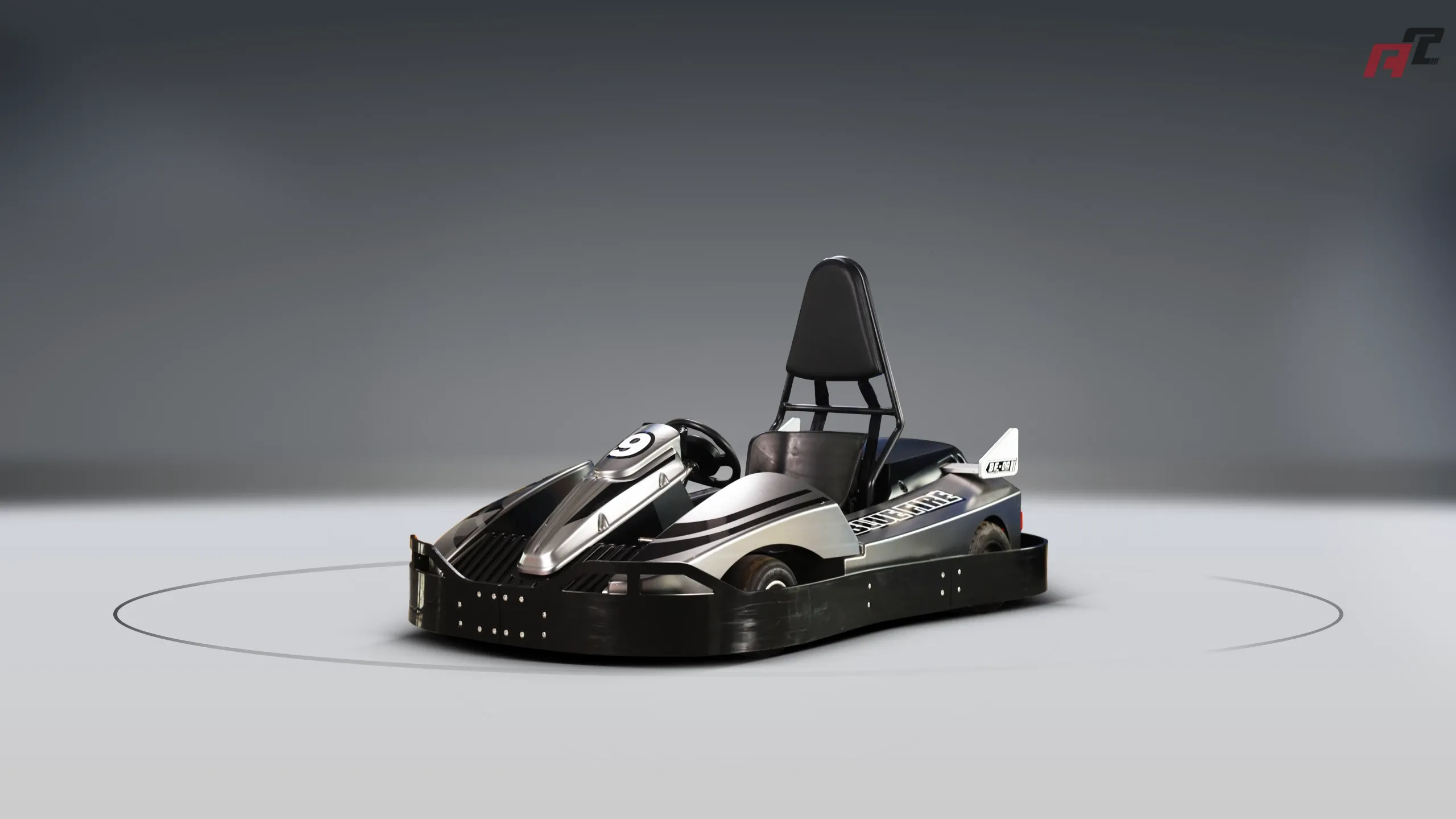
Blue Fire Electric Go Karts
Experience the thrill of speed with ANCHI's Blue Fire Electric Go Karts, perfect for both adults and kids. These high-performance electric go karts deliver unparalleled excitement while ensuring safety and reliability. Ideal for family fun or competitive racing, our electric go karts blend innovation with cutting-edge technology. Explore the future of racing with ANCHI, where performance meets sustainability. Discover more today and rev up your passion for adventure with our premium electric go karts.

Cyclone RS 2025 1200W Electric Go-kart for Home Entertainment Centers
The Cyclone RS 2025 is a high-performance electric ride-on car designed for thrill-seekers, entertainment centers, and commercial amusement businesses. Built with a durable ABS body and reinforced metal chassis, it combines strength, safety, and speed for a superior driving experience. With a 1200W mid-mounted motor (peaking at 3600W), advanced control system, and long-lasting 72V20AH LiFePO₄ battery, this ride ensures both powerful performance and reliability.
Whether for amusement parks, game zones, rental businesses, or personal recreational use, the Cyclone RS 2025 delivers unmatched excitement and durability.

Kids Electric Off Roads One-seater ATV
Discover adventure with the ANCHI Kids Electric One-seater ATV, the perfect electric off-road experience for young explorers. Designed for safety and performance, this electric off-road go kart for kids offers unmatched thrills on any terrain. Its durable build and easy-to-use controls ensure a fun and safe ride. Ideal for budding adventurers, this ATV promises endless excitement. Explore the world with confidence with ANCHI’s innovative electric off-road solutions for kids.


